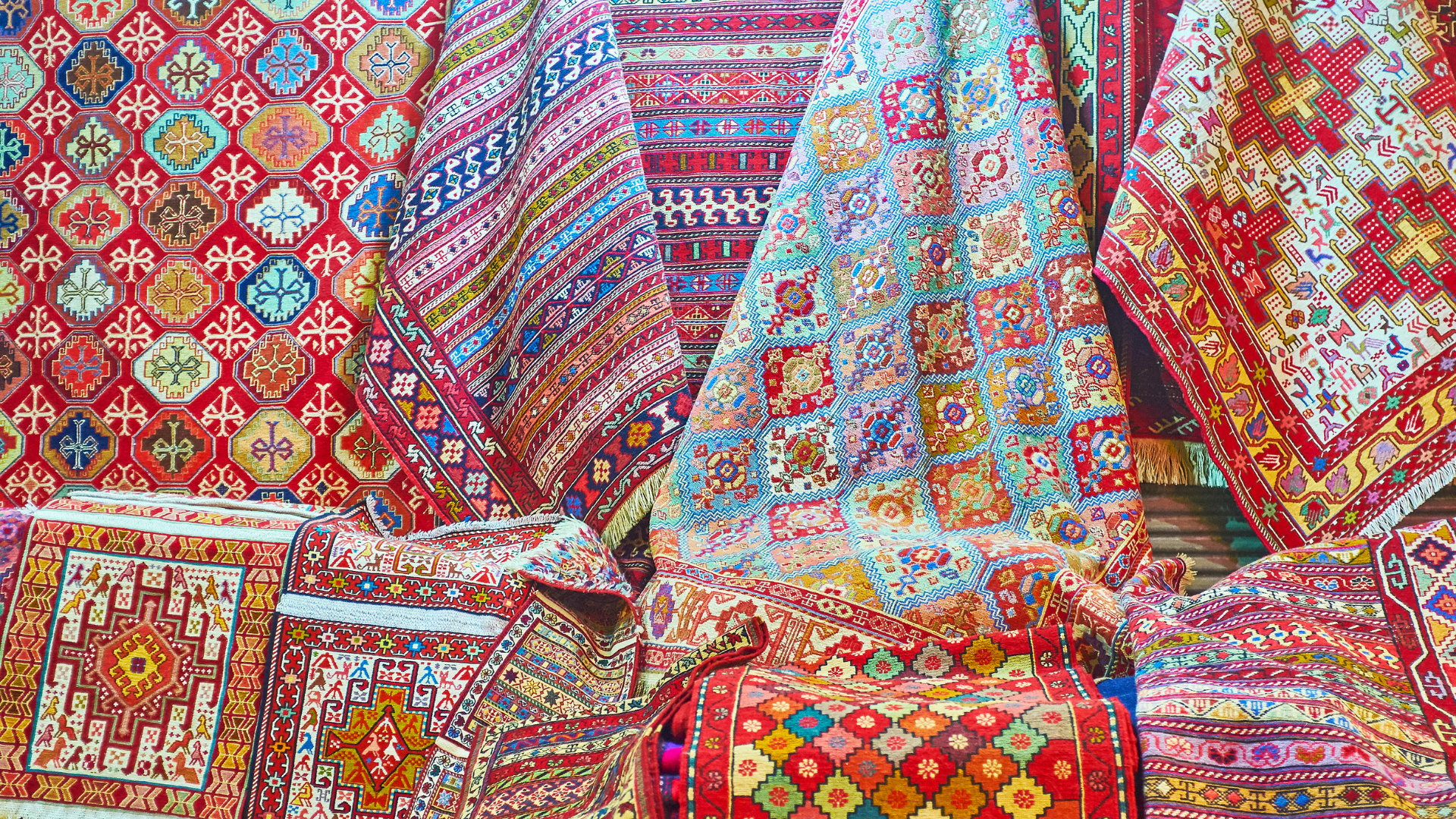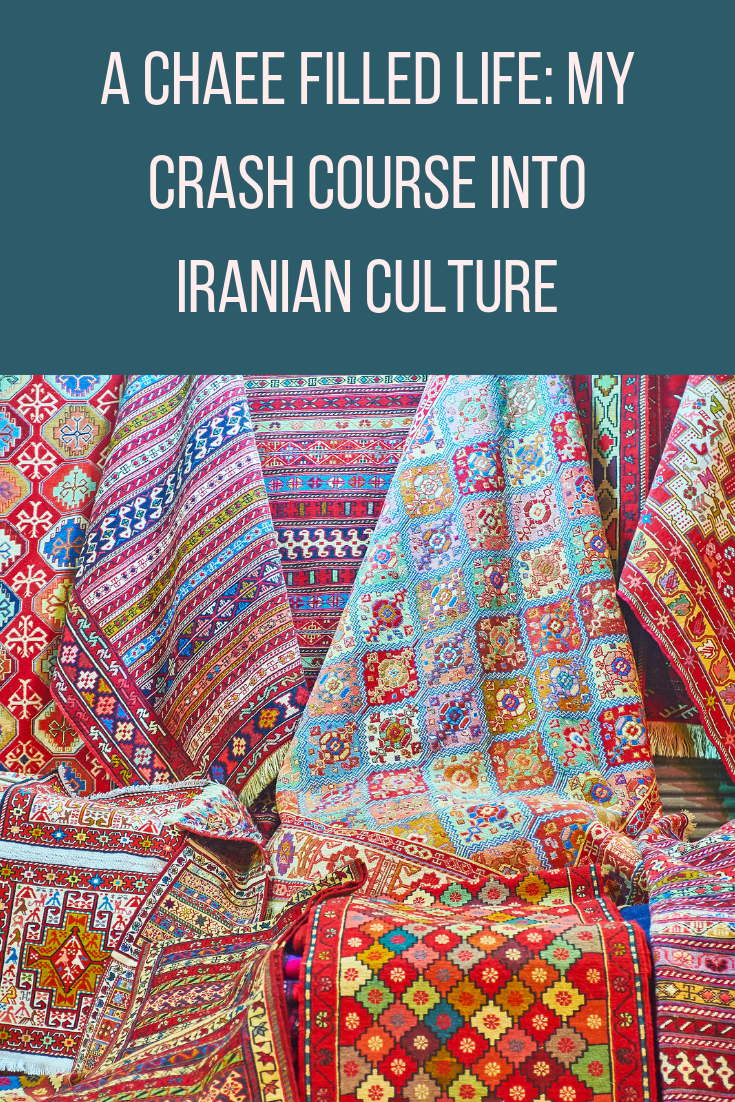
How many of you can remember watching ‘My Big Fat Greek Wedding’ and laughing at how Greeks use Windex to cure everything? I know I certainly did. Well, in my house it’s not Windex, it’s chaee (‘tea’ in Farsi). I didn’t have a big fat Persian wedding (I’ll save that for another post), but I certainly married into a huge Persian family. I love my husband’s family and all of the amazing things that come with intimately discovering a culture other than my own.
It’s been an adventure in opening myself to different ways of thinking, new foods, music, and traditions. Here are some of the things I have welcomed into my life:
The Mehmooni
In its most basic description, a mehmooni is a party or get together. It can be a small affair for chaee or a large celebration. However, after a Persian wedding this takes on a whole new significance. It’s not just a party, but a serious tradition.
Each member of your close family (i.e.: parents, siblings, cousins, aunts, uncles, grandparents, etc.) is to open their home to the newlyweds for a party very shortly after the wedding. What this translates to is a month (or more) of every single weekend being booked for a mehmooni after the wedding. (This is a delightful tradition, but after the fifth or sixth, my husband and I were wondering if we were ever going to have a quiet weekend again!)
Persians love to party and at nearly every mehmooni there will be Persian music, which leads to dancing, which leads to belly dancing; a group of people playing backgammon and/or hokm (a card game similar to hearts); several generations of family; lots of food and of course chaee. Trying to leave a mehmooni is an exercise in patience– it’s not unusual to take half an hour to forty minutes to leave. I can recall several where I had said goodbye to guests 3 or 4 times before we actually left the party. I’ll never forget the first time my parents went to a large mehmooni and called me the next day asking whether it always takes forever to leave!
Taarof
This is something that requires years to finally get the hang of. Taarof, essentially, is to defer any sort of want/greed. Sounds simple enough, right? No way. There are so many nuances to taarof. When traveling to the Middle East, people are often informed to not compliment anyone on their possessions, as the person being complimented would be embarrassed and that person would feel obligated to give that item to the person giving the compliment. This is a very simple example of taarof.
I still forget this occasionally and will compliment my mother in law on something and will receive that item later. (She’s getting better at realizing that I think the items look nice on her and not necessarily on/for me and refrain from gifting it to me… so there’s a bit of a learning curve for both of us!) A more nuanced example is not accepting food or drink until the third offering as a guest in someone’s home. Accepting the first offer is considered extremely rude, showing greed. The second is just a compulsory effort. The third determines whether or not the guest truly would enjoy a beverage or something to eat.
The best example I can find of how complex taarof is comes from a story I had heard about of a (European) couple traveling through Iran. The couple had rented a car and stopped for gas. They were greeted by an attendant who filled their car and washed their windows. The couple then asked how much was owed. In true Persian fashion, the attendant used taarof and said that it was his pleasure to serve the couple and that it was complimentary. Not understanding this as being a ritual in deference, the couple thanked the attendant and drove away leaving him dumbfounded and upset. Ultimately, what had been expected from the couple was for them to have graciously thanked the attendant and to have insisted on paying until he conceded to allow them to pay.
Needless to say, after 10 years I’m still cautiously navigating the world of taarof!
Bokhor and Miveh
‘Bokhor!’ is equivalent to ‘Mangia!’ in Italy, which means ‘Eat!’ Every Persian mother is ingrained to tell her children, grandchildren, relatives’ kids, etc. to ‘Bokhor!’ None more so than to tell them to eat miveh (fruit). Bowls and bowls of fruit. Everywhere. There are bowls of fruit in every common space in the house. In a Persian household, the crisper and produce drawers in the refrigerator are always overflowing with fruit and there’s a mother chasing after a kid saying, ‘Miveh mikhaee?’ Followed by, ‘Bokhor-bokhor.’ (Translates to, ‘Would you like some fruit? Eat-eat.’) This does not stop at adulthood. My husband will attest that his mom, aunts and women his mother’s age will forever be spooning food onto his plate (or mouth!), whether he wants it or not, and will tell him to eat fruit. Got to love it!
The Love of the Persian Rug
I knew little of this deep love for the rug before I met my husband. It really is more of a personal hoard of identity and pride. My mother in law has them stacked under her bed and two closets dedicated to them. In some homes, you may even find a rug or two hiding under a rug that’s on display in addition to those stashed in closets, attics, and other nooks throughout the house. They are more than floor coverings, these rugs symbolize status, art, regions/territories, fine craftsmanship and most importantly, a visible reminder of the owner’s pride in their homeland and cultural history. I can honestly say that there isn’t an item or group of items that resonates within me what my history and cultural identity is like a Persian rug does for an Iranian; for which I am in awe and slightly envious.
Chaee for all Concerns
As previously stated, chaee is an omnipresent function in Persian day-to-day life. It is served at all hours, day or night. Is it 115 degrees outside? Chaee is being served. Dance party? Chaee. Kid’s birthday party? Chaee. Headache? Chaee. Stomach ache? Chaee nabut (tea with saffron rock candy sticks). Bad day? Chaee. Stubbed your toe? You guessed it, chaee is coming your way. Chaee really is for Persians what Windex is for Greeks.
Obviously, there are too many traditions (weddings, New Year celebrations, holidays), food (one word: tahdeeg), and experiences to list than possible. I am so thankful for my multicultural family. I love how my Persian family loves to have parties, teach me about taarof, collect beautiful rugs, spoon food on my plate and offer me a delicious cup of chaee to brighten my day.
Better yet, I love how much I have learned about a different culture, about myself, and my own culture and how my children will grow up to appreciate their father’s heritage as a part of their own.
Do you have a multicultural family? If so, I’d love to hear how you have embraced and merged traditions!













Heather, you are grate, we all love you and waiting you in Florence. It is not a taarof. Say hello to Omid an kiss your children for us.
Comments are closed.